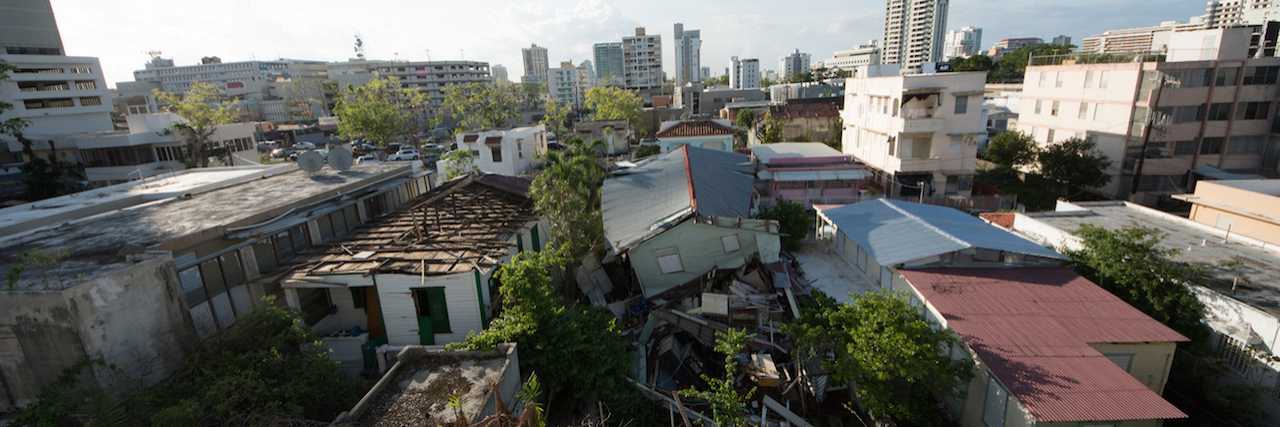Thrashing winds. Pouring rain. Devastation as far as the eye could see. Those were the circumstances Americans living in Puerto Rico encountered during Hurricane Maria — the largest and strongest cyclone to strike the U.S. territory in nearly 90 years.
Now, nearly two months after the winds died down and the sun broke through the clouds, the pain and suffering is far from over. Food is still scarce; those who remain on the island are either hunkered down in shelters or seeking a place with electricity to stay; clean drinking water is still a privilege; and many are still unable to receive the medical care they so desperately need.
Why, then, would it come as a surprise to state that a majority of Puerto Ricans are struggling with their mental health in the wake of this disaster?
According to USA Today, many victims who come through shelters are shaking uncontrollably and crying — common signs of a panic attack. And while many people still need the basic necessities of refuge, electricity, food and water, even more need help managing the anxiety and trauma that were unleashed by Hurricane Maria on September 20.
It is imperative these issues continue to be brought to light, as it is apparent that the people of Puerto Rico are not only suffering physically and emotionally, but mentally as well. Additionally, the aftermath of Hurricane Maria has only added strain and heartache to an already struggling island. The U.S. territory’s overall mental health was already on the decline due to a 10-year recession that sent unemployment soaring, subsequently increasing poverty and familial separation due to migration.
However, the New York Times reported many Puerto Ricans are reporting intense feelings of anxiety and depression for the first time. Additionally, those who struggled with mental illnesses prior to the hurricane — and have had access to their regular psychiatric care and medications cut off — have seen their conditions deteriorate.
This has been exemplified by the people’s visceral responses not only to the surrounding devastation, but to natural events — such as rain storms and wind.
In an interview with the New York Times, Dr. Carlos del Toro Ortiz, one of the few accessible clinical psychiatrists, stated, “When it starts raining, they have episodes of anxiety because they think their house is going to flood again … They have heart palpitations, sweating, catastrophic thoughts. They think ‘I’m going to drown,’ ‘I’m going to die,’ ‘I’m going to lose everything.’”
The biggest question one is faced with after reading such reports is typically, “What can be done?”
Although access to the island of Puerto Rico is still vastly limited, volunteers can still make their way through to provide relief and aid in the efforts to rebuild. With this in mind, it is imperative to encourage those who are professionally trained in the field of mental health — from therapists to psychiatrists to psychologists — to volunteer their services to our aching brothers and sisters in Puerto Rico. This can be done independently or through organizations such as Direct Relief, a group that is licensed to work as a wholesale distributor of medicine and ultimately tries to supply victims with the antibiotics, mental health drugs, and hemophilia medications for children.
If you are unable to physically provide support to the people of Puerto Rico, please consider donating any amount of your discretionary funds to relief efforts. Find a legitimate charity that is not only prepared to help those in need, but is dedicated to aiding the island’s long-term recovery as well.
We want to hear your story. Become a Mighty contributor here.
Getty image via cestes001

